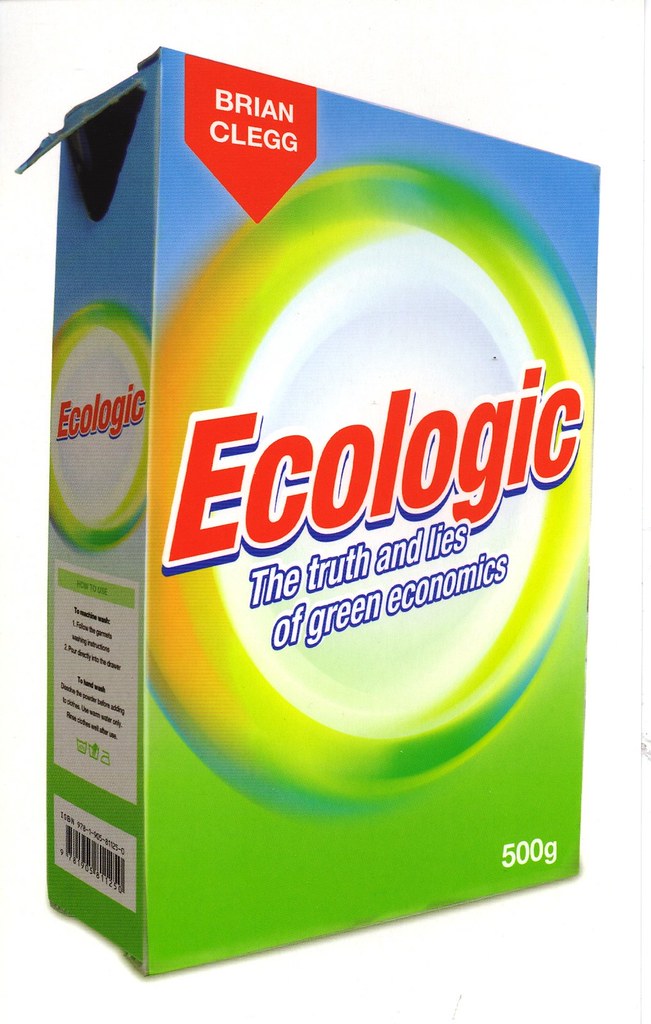 Not that I've been to a bookshop to see it yet, but my latest title Ecologic is now officially published. Wee-hee!
Not that I've been to a bookshop to see it yet, but my latest title Ecologic is now officially published. Wee-hee!In case you're interested, here's what it's about:
We aren't well equipped to deal with green issues. Our natural tendency with such an emotive issue is to be swayed by feelings, rather than logic. And that's fine to get us all excited - but it doesn't make for good solutions to green problems. Ecologic uncovers the reality behind the greenwash and the eco-bogeymen.
It includes:
- Why biodegradable carrier bags are worse for the environment than conventional ones
- How a marketing organization gets primary schools to promote their brand
- Why you're better off not eating celery than eating organic food to avoid additives
- How a BMW 3 series can be better for the environment than a Toyota Prius hybrid car
- Why carbon offsetting and being carbon neutral can have no impact on the planet
- How a cottage garden can teach a big lesson in sustainability
- … and much more
You can find out more at my website or at the Amazon online bookshop.
It has already had a wonderful review in BBC Focus magazine. Here's a few of the highlights:
This book crackles. Every paragraph pits your heart against your head. Those with green sensibilities and a nervous disposition may have a cardiac arrest. But the rest of us will have our synapses set alight...
He rails at ‘MMR madness’ and has the notorious Channel 4 programme The Great Global Warming Swindle bang to rights as an intellectual swindle itself. He is intelligent on fair trade and the “muck and mysticism” of organic farming and understanding about our unfortunate confusion over biodegradables...
A cracking read for anyone who cares about both their environmental footprint and their sanity in a world being flooded with greenwash and gobbledegook. (5 stars out of 5)

Comments
Post a Comment